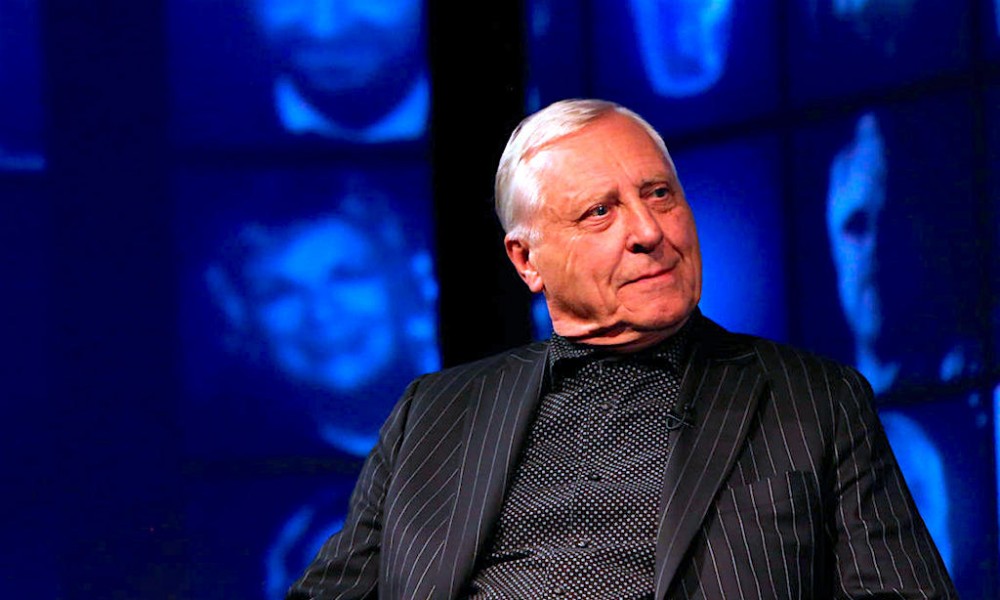Peter Greenaway: An interview with the director of Eisenstein in Guanojuato

Peter Greenaway is an award-winning writer/director of a number of films and on 13th April 2016, BAFTA hosted a Life in Pictures that looked back at Greenaway’s illustrious career. To coincide with the release of his latest film, Eisenstein in Guanojuato and the Life in Pictures event, the Upcoming caught up with him to chat about bringing Eisenstein back to life and the future of cinema.
What was it that first drew you to Eisenstein?
Well, I was training to be a painter and had ambitions to have a career as a painter and I think you know the big rush – I was 74 last week, so I am 21 in 1963 – and that’s the big age for the first generation after the Second World War to find an identity. So huge numbers of people, certainly in the culture world and in the pop world, all rushed to art schools. I was at art school with Ian Dury and we all went there perhaps to become artists or painters and we all came out doing something different. They all had film clubs, so you know, the cross fertilisation between pop art was just coming in; I was taught by Peter Blake and Derek Hirst and all those people and there was a demand to see everything, do everything, be everything. It was a very, very optimistic period and it was during that period, almost by accident, that I saw the films of Eisenstein the he made when he was 26! 26 to make a film like Battleship Potemkin – extraordinary! And I was hooked, he was a guy who understood what I wanted to understand and his cinema was extraordinary – sort of poetic cinema as much to do with form – and he was heavily criticised by Stalin for being too interested in form. Stalin just wanted cheap, dumb-downed propaganda to get everybody to support Soviet Communism, but great propaganda is always great art: the Sistine Chapel, Michelangelo, we don’t think of him as a propagandist but he made some extraordinary propaganda for Catholicism in the Sistine Chapel. He rose above that and I sincerely believe we can make those analogies.
Eisenstein was of course employed to make propaganda: Strike, Potemkin, it’s propaganda. But it was so well made, so well conceived that it rose above those limited times that were related to 1917. So, enormous enthusiasm. I had no idea then whatsoever I even wanted to be a film director, so there was no incipient little egg burrowing away there – “let’s prepare to make a movie about Eisenstein” – no, it’s very, very recent that it’s come into play. But as my career – making films all around the world and certainly going to film festivals around the world – I’ve been everywhere Eisenstein went and I went with a curious eye, osmotically putting the information together. What is it Pasteur said? Fortune favours the prepared mind, stay prepared! Even though it might not happen tomorrow, or even next week it might happen in three weeks time.
When was it that you decided to shift from painting to filmmaking?
Well, really it started with the art school education. It’s not that we wanted to come out painting like Picasso, it was just a general enormous amount of splurge, and that sense of relief that our parents had been through the Second World War and here we were with all sorts of advantages. You know, money in the bank, food on the table, let’s go for it.
What made you want to focus on this portion of Eisenstein’s life particularly?
Well, he didn’t live very long. Born two years before the 20th century he was already dead by 1950; he died of a heart attack so not a very long life. And I’ve always been interested in all the beginnings – the very exciting beginnings – of the 20th century, with so many enormous things happening, like the whole world of painting and loss and figuration. Huge revolution that we take for granted now. Even music lost harmony! Could you imagine Beethoven thinking that you could have music without harmony? Impossible radical transformation. So this really meant that for the first time painting came out with what it really should be doing. So right up until Monet, most painting was archival. It was painting realism, what people could see, what people could know, etcetera but suddenly there was that break, where painting became just it’s own concern and not concerned with being an archival phenomena. And I’m hoping that when we get rid of stupid narrativity in cinema that we will finally really create something valuable because cinema has hardly created anything of value at all. Scorsese makes the same films as Griffith.
That’s an interesting point.
I mean, they say, don’t they, that cinema invented the glance but Van Eyck was doing that way back in 1430. Just go to Antwerp and look at Van Eyck’s paintings and you can see the motion of the psychological glance; and I think the other big thing – and we jump back to Eisenstein and the Russians in general – is the whole montage theory. But montage theory really is a literary phenomena, which has been going on for an awful long time and I think the whole essence for me, the excitement of Eisenstein, is the notion that he’s not simply illustrating literature. He’s not simply making the bookshop the centre of cinematic activity, he’s making poetry. And poetry is 10,000 times more fascinating and useful and enriching than prose.
Was it difficult to cast Eisenstein?
Yes, it was difficult for all the reasons we’ve said: he had to be around about 33, he had to convince us he was a Russian, he had to convince us he was an intellectual and he had to speak – although we never particularly use it – he spoke eight languages; occasionally we see him using other languages. And he was the life and soul of the party. This idea of him being a po-faced intellectual, with his head under his coat, hiding away in his hotel room… not true at all! The Russians of course would like to think of him as being a serious figure, but he wasn’t like that at all. Did you ever see Milos Forman’s Amadeus? Where Mozart’s given a pink wig and everybody went wild because there was a way that that character was meant to be anarchic and difficult and problematic and didn’t actually fit everybody’s idea of who Mozart really was? So, I think we’ve maybe turned the pricks around, if you like, and obviously irritated people. But I would like to think, given the information I have (and I’ve been studying this guy for about 50 years) it’s true to what he was like. But history is impossible. There’s no such thing as history, there’s only subjectivity and all history is written by writers and all writers are liars, so where do we get our information from?
How has the film been received in Russia?
Well the first rush upset everybody because of the homophobia – which is not real, because I know of a lot of people in Moscow and St Petersburg and they’re not fazed by this homosexual thing, it’s a Putin phenomenon, demonising the West. But I think what also irritated them was that they really should have made a film about their national hero and that it’s not a film in Russia – and what am I doing making a film about Eisenstein when he’s not in Russia? And that sort of outsider’s point of view is a problem for them, and I can understand it. But there’s suddenly this second rush, because this film was premièred at the Berlin Film Festival two years ago, so a long time has passed for people to get comfortable with the movie and the Russian world is turning. They’re beginning to understand, looking at the film a second time, a third time and are actually beginning to warm to it. I’m getting lots of invitations to go to Russian film festivals. I’ve been advised not to go.
Eisenstein’s sexual orientation plays a big role in the film but it’s not often discussed in reality. Was that part of the reason you had it at the forefront?
No, I just think that it’s very, very important for the way we behave. There’s a line at the beginning of the film where he’s in the shower and he says “I need my sexual frustrations, in order to further my determination to make cinematic history.” Our frustrations, our unhappinesses, our distastes, our inability to manoeuvre the way we want to, create the pressure to move beyond what we make.
Do you think this film will play a role in revitalising Eisenstein’s legacy?
Well, I think it’s going to happen anyway. Next year is 2017 and we’re going to memorialise the Russian revolution. It’s happening everywhere: this year Shakespeare, next year Russian revolution. There are, even here, various exhibitions about Eisenstein now in London. I’ve just come back from Mexico – there’s a big one in Mexico, including all his erotic drawings, and there’s going to be a big exhibition by Red Square in Moscow next year and that exhibition is going to move to the Pompidou centre in Paris. So we’re going to get thoroughly fed up with Eisenstein!
Natasha Furlong
Read our review of Eisenstein in Guanajuato here.
For further information about BAFTA’s A Life in Pictures visit here.

























Facebook
Twitter
Instagram
YouTube
RSS